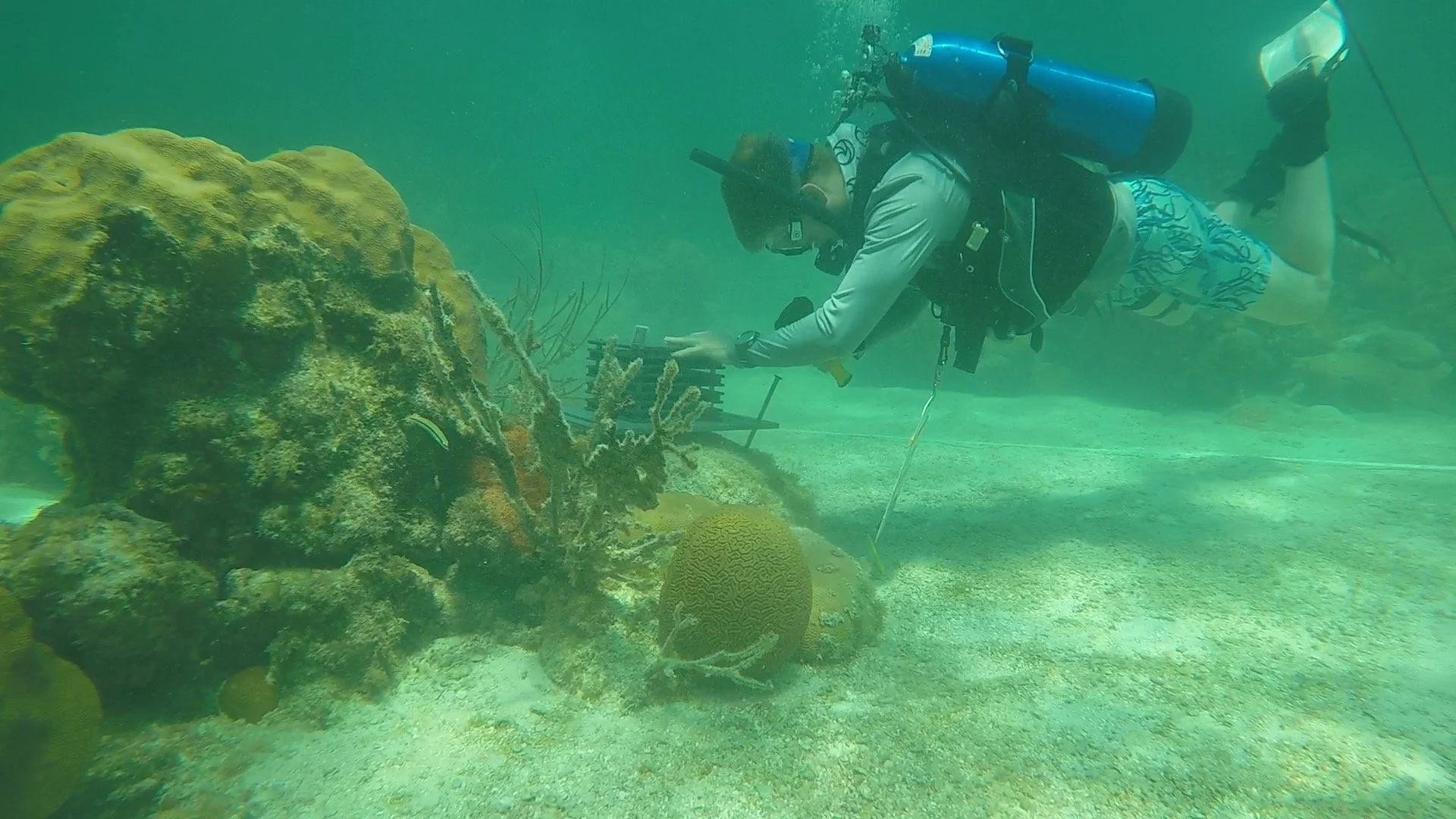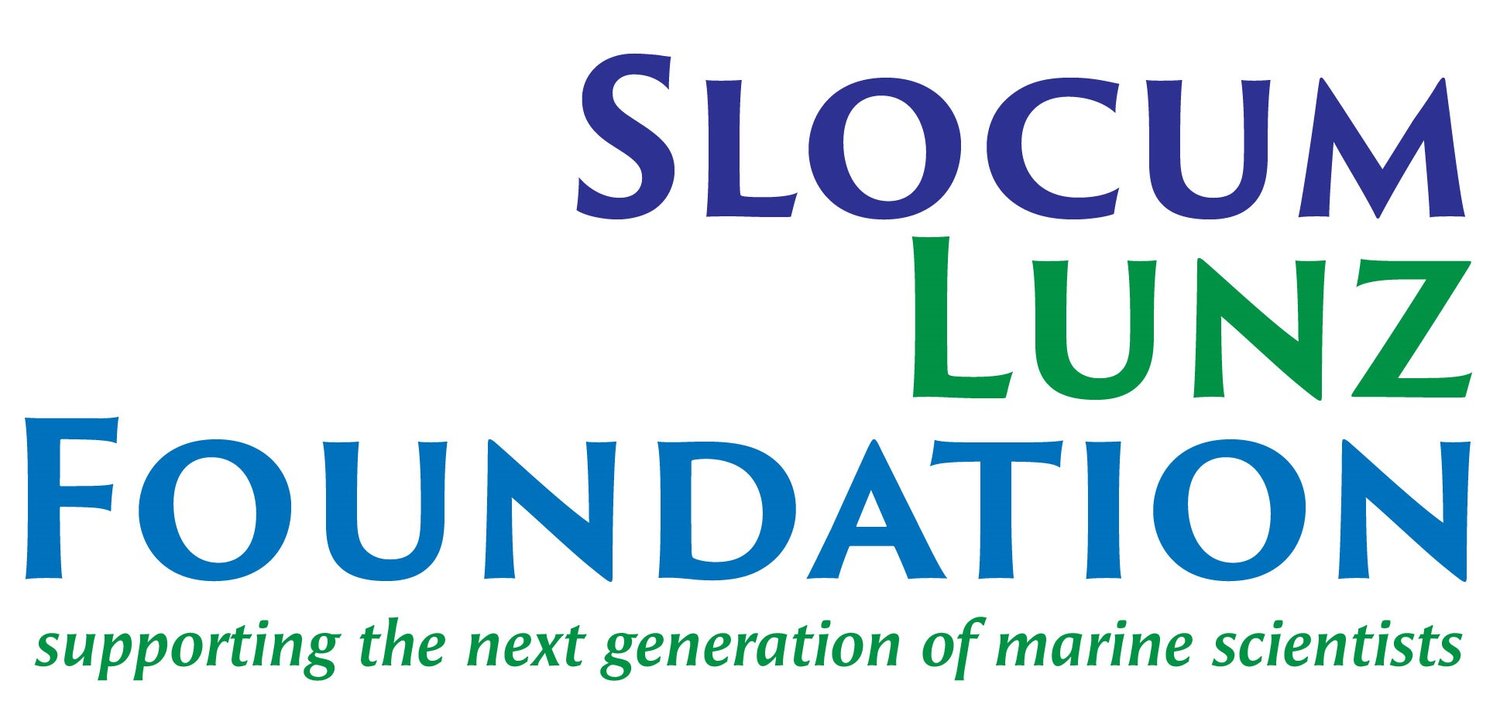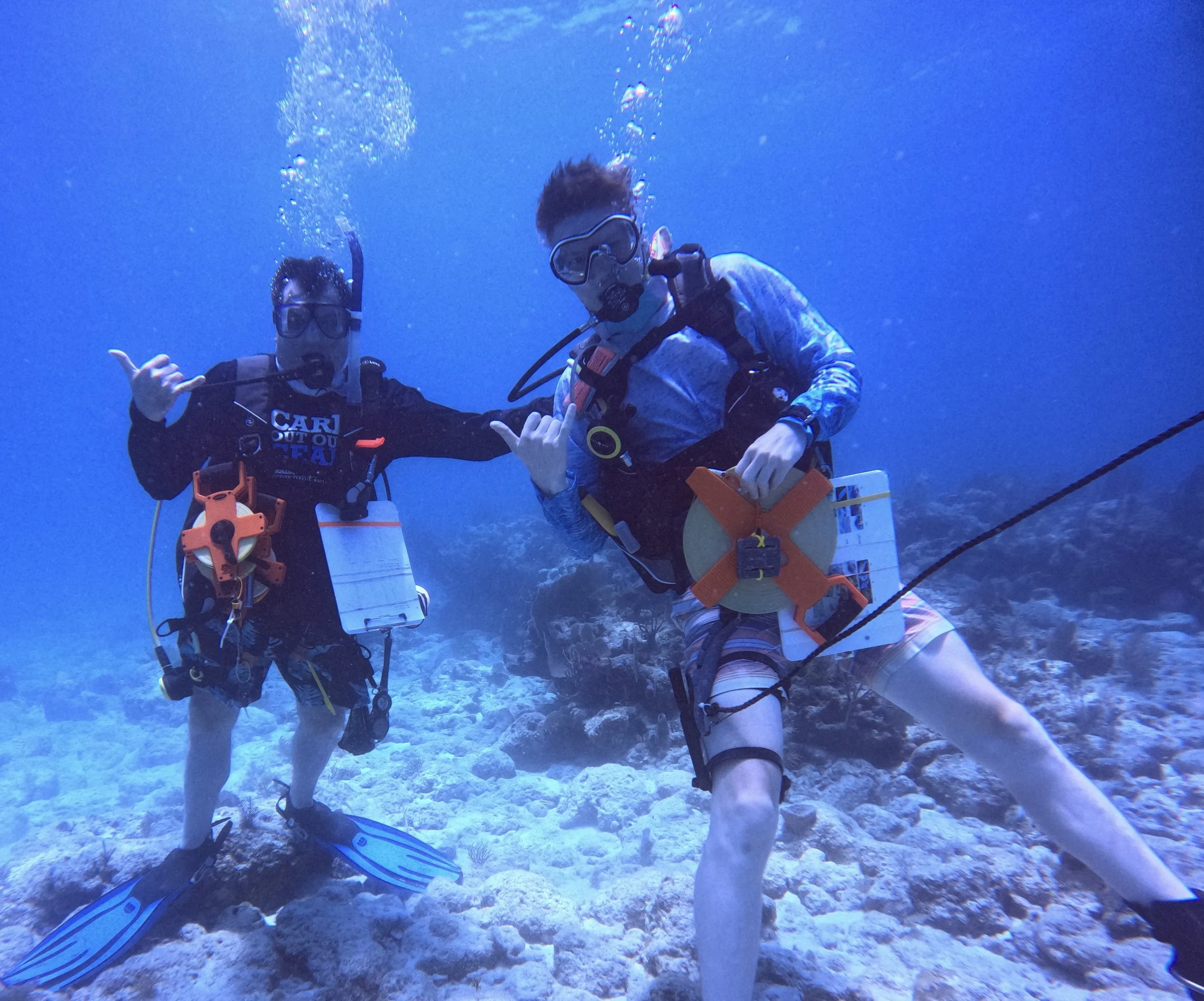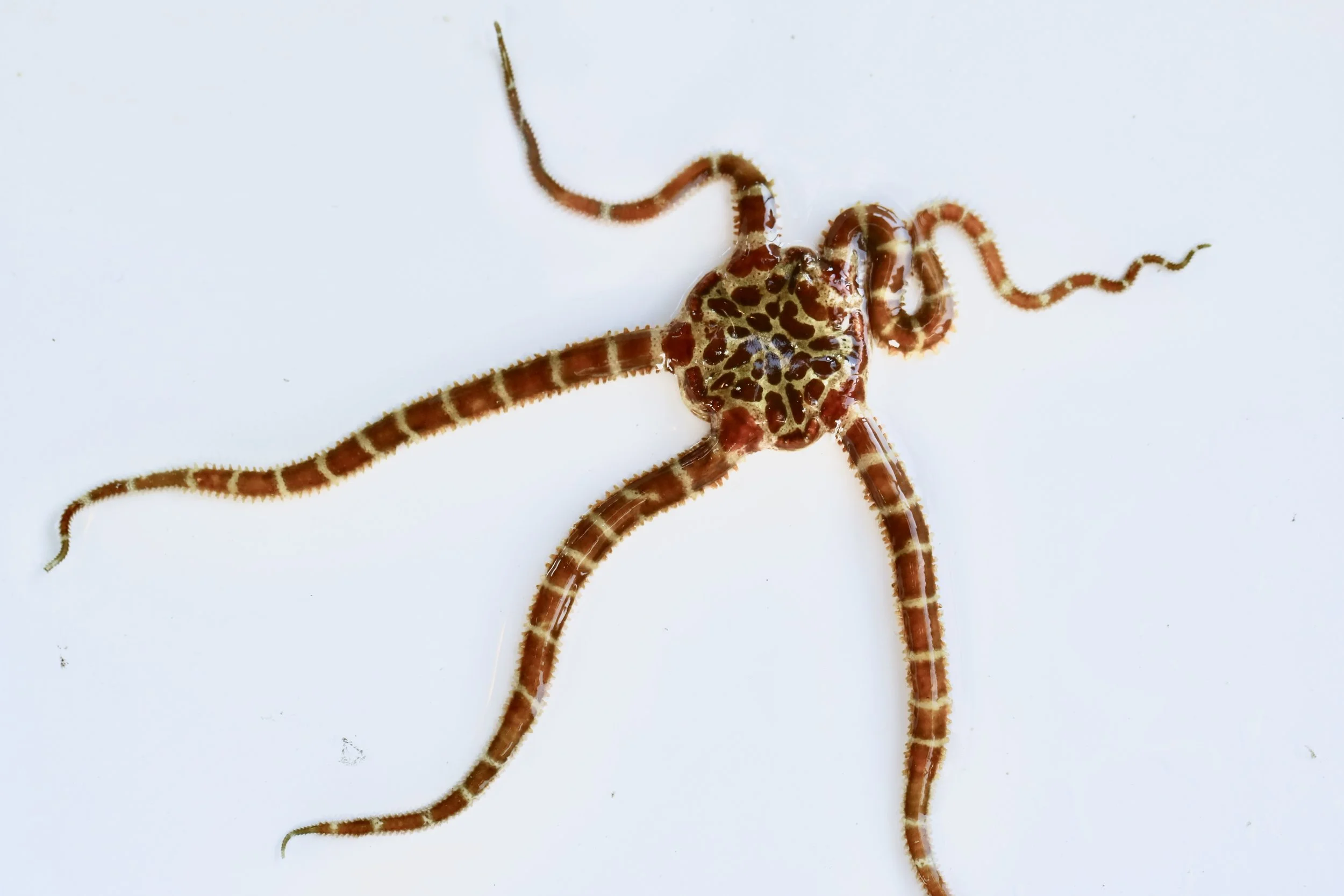
Luke Stoeber
Department of Biological Sciences
Clemson University
Photo courtesy of Dr. Michael Childress
Luke’s Story
Luke’s Research
Luke is an M.S. student in the Department of Biological Sciences at Clemson University with Dr. Michael Childress. As a native Ohioan, Luke spent his time growing up snorkeling, fishing, and boating on Lake Erie. His love for the water caused him to travel to Florida to pursue a B.S. degree in Marine Science from Jacksonville University with minors in Chemistry and GIS. During his time in Jacksonville, Luke explored many aspects of marine research, ranging from lab-based microplastic experiments on the anemone Exaiptasia pallida to surveying gray seal colonies in Nova Scotia; however, he found his passion for marine ecology and field work while diving on the reefs of the Florida Keys and Belize. As a graduate student in the Childress Lab, Luke now gets to spend his summers and school breaks working on his thesis research in the Middle Florida Keys. While there, he loves diving almost every day and sorting through invertebrate sampling units to see cool creatures like mantis shrimp and octopi. When he’s not in the field, Luke enjoys volunteering time with Something Very Fishy – an educational outreach program at Clemson University that teaches ocean literacy principles to elementary children. He also likes cooking, CrossFit, and visiting friends and family.
Luke’s thesis project is centered around understanding how the degradation of reef structure impacts the biodiversity and functional role of marine cryptofauna communities. Cryptofauna are small, inconspicuous organisms that inhabit the cracks, crevices, and interstitial spaces of the reef. While often overlooked, these small organisms represent the majority of metazoan biodiversity on coral reefs and play critical roles in ecosystem functioning. In recent years, coral reefs have come under threat due to global climate change and other stressors, and the structural complexity of these systems has changed as a result; however, the relationship between marine cryptofauna and changes in reef complexity remains understudied. The research funded by the Slocum-Lunz Foundation will investigate how changes in structural complexity at large and fine scales impact the diversity and functional roles occupied by cryptofauna communities. This will be done through a series of mensurative and manipulative experiments across 15 field sites in the Middle Florida Keys. The research will offer a valuable new perspective on the impacts of reef degradation on biodiversity-ecosystem functioning, helping to better inform reef restoration and management efforts.
Publications and Presentations associated with Slocum-Lunz Foundation funds:
Photo courtesy of Sarah Rider
Stoeber, L. and Childress, M. (2025, April 1-4). Crumbling Coral: Investigating How Changes In Structural Complexity Impact Cryptofauna Communities [Conference Oral Presentation]. Annual Meeting of the Benthic Ecology Society, Mobile, AL, United States. https://bem.disl.edu/program.html
Kellerhals, A., Abrams, T., Cumbee, A., Stoeber, L., & Childress, M. (2025, April 1-4) Life Beneath Rubble: The Cryptofauna Puzzle [Conference Poster Presentation]. Annual Meeting of the Benthic Ecology Society. Mobile, AL, United States. https://bem.disl.edu/program.html
Photo courtesy of Sarah Rider




